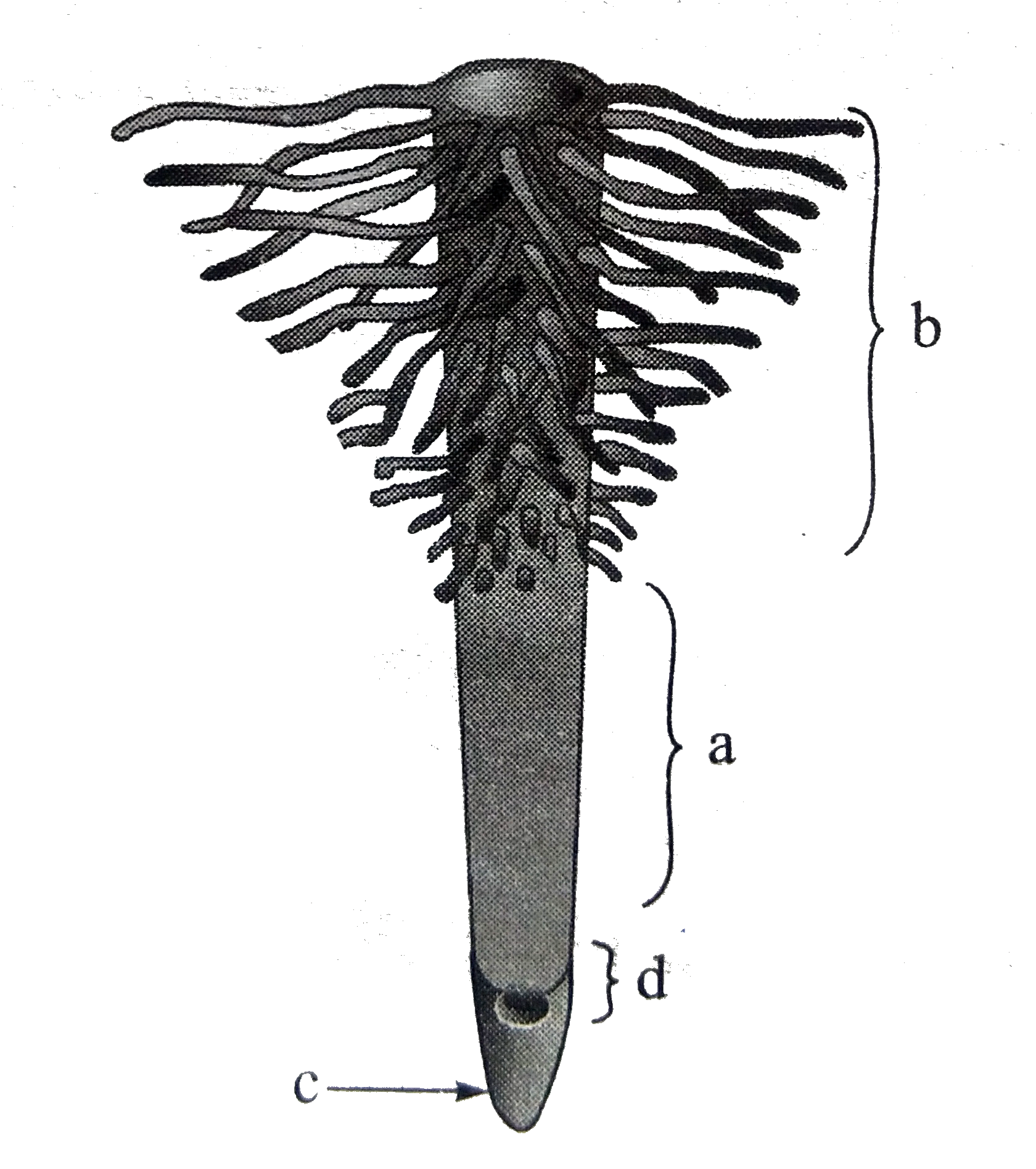The cells of region of meristematic activity of root are
Large, thick walled and with dense protoplasm
Small,thin walled and with little protoplasm
Very small, thin walled and with dense protoplasm
Very large thick walled and with little protoplasm
The correct Answer is:C
To answer the question regarding the cells of the region of meristematic activity of the root, we can follow these steps:
1. Understanding Meristematic Tissue:
- Meristematic tissue is a type of plant tissue that consists of undifferentiated cells capable of division. It is responsible for the growth of the plant.
2. Location of Meristematic Activity in Roots:
- In roots, the region of meristematic activity is located just above the root cap. This area is crucial for the growth of the root.
3. Characteristics of Meristematic Cells:
- The cells in this region are characterized by being small in size. They are also thin-walled, which allows for easier cell division and growth.
- These cells contain dense protoplasm, which is essential for their metabolic activities and division.
4. Comparing the Options:
- Option A: Large, thick-walled, and with dense protoplasm - Incorrect, as meristematic cells are not large or thick-walled.
- Option B: Small, thin-walled, and with little protoplasm - Incorrect, as they have dense protoplasm.
- Option C: Very small, thin-walled, and with dense protoplasm - Correct, as this accurately describes the meristematic cells.
- Option D: Very large, thick-walled, and with little protoplasm - Incorrect, as this does not describe meristematic cells.
5. Conclusion:
- The correct answer is Option C: very small, thin-walled, and with dense protoplasm.
- Meristematic tissue is a type of plant tissue that consists of undifferentiated cells capable of division. It is responsible for the growth of the plant.
- In roots, the region of meristematic activity is located just above the root cap. This area is crucial for the growth of the root.
- The cells in this region are characterized by being small in size. They are also thin-walled, which allows for easier cell division and growth.
- These cells contain dense protoplasm, which is essential for their metabolic activities and division.
- Option A: Large, thick-walled, and with dense protoplasm - Incorrect, as meristematic cells are not large or thick-walled.
- Option B: Small, thin-walled, and with little protoplasm - Incorrect, as they have dense protoplasm.
- Option C: Very small, thin-walled, and with dense protoplasm - Correct, as this accurately describes the meristematic cells.
- Option D: Very large, thick-walled, and with little protoplasm - Incorrect, as this does not describe meristematic cells.
- The correct answer is Option C: very small, thin-walled, and with dense protoplasm.
Similar Questions
Knowledge Check
Meristematic activity occurs at -
AVascular tissueBStem apexCLeafDRoot hairMature differentiated cells revert to meristematic activity to form callus by
ADifferentiationBCytodifferentiationCRedifferentiationDDedifferentiationThe process in which mature differentiated cells reverse to meristematic activity to form callus is called
ADedifferentiationBDifferentiationCCyto-differentiationDRedifferentiation
The nuclei of meristematic cells are
View SolutionThe nuclei of meristematic cells are
View SolutionRecognise the different region in the root section

i. Root cap
ii. Region of meristematic activity
iii. Region of elongation
iv. Region of maturation
View SolutionThe cell wall of meristematic cell is made of
View SolutionAssertion :- Plants show open form of growth.
Reason:- Plants retain their meristematic activity at certain locations, throughout their life.
View Solution
